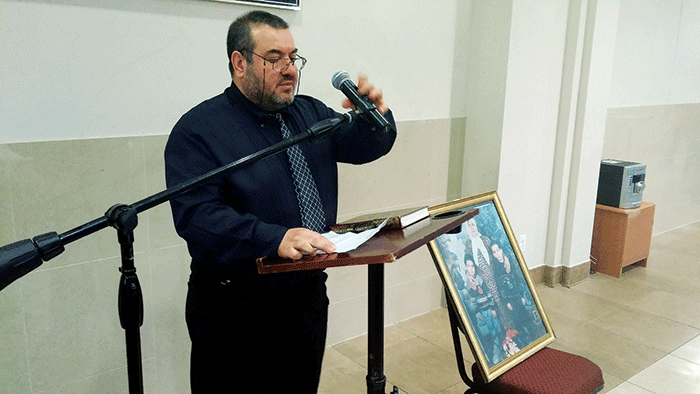
DEARBORN — Nineteen years ago, the Israeli army shelled a United Nations compound that was sheltering civilians in Qana, south Lebanon, killing 106 people, including two children from Michigan.
Almost two decades later, the memory of the victims has not faded; community members gathered at the Islamic Center of America on Sunday, April 18, to commemorate the anniversary of the massacre.
The event, which was organized by the Congress of Arab American Organizations and the Qana Al-Jalil Committee, paid tribute to Hadi and Abdulmohsen Bitar, the two local children who were killed in the 1996 massacre while visiting their grandmother in Lebanon.
Qana, which was again targeted 10 years after the first massacre— during the latest Israeli war on Lebanon on July 30, 2006— has become a symbol for the struggle against Israel.
The 1996 massacre came under international scrutiny by rights organizations that accused Israel of deliberately targeting the compound.
Amnesty International’s investigation of the Qana Massacre revealed that the Israeli army “intentionally attacked the U.N. compound, although the motives for doing so remain unclear.” A U.N. investigation concluded that the shelling was “unlikely…a technical or procedural error.” And Human Rights Watch described the massacre as a “violation of a key principle of international humanitarian law.”
Activist Mohamad Hammoud, who emceed the event, recited a poem about Qana at the beginning of the memorial.
Osama Siblani, publisher of The Arab American News, said it is vital to honor the victims.
“It is important to remember because if we do not remember, most likely it will happen again,” Siblani said of the massacre.
Siblani paid homage to the Bitar brothers who ran to a building protected by the U.N. logo, which was supposed to be excluded from the attacks.
“However, we found out that the United Nations or other nations are not going to protect us,” Siblani continued. “What will protect us is us. Hundreds of U.N. Security Council resolutions have been thrown in the wastebasket by the Israelis.”
He praised the resistance as the sole protector of Lebanese civilians.
“The Israelis are not able to get across one foot into our country [Lebanon],” he said. “And that is because brave people who were ready to pay the ultimate sacrifice, taught them a lesson that we cannot forget our martyrs and we shall never forget who our enemy is.”
Siblani stressed the importance of unity to safeguard the community from the challenges it is facing. He said the resistance defeated Israel in the 2006 war when the second Qana massacre was committed; hence the enemies of the Arab World are reverting to the divide-and-conquer strategy to prevail.
“The only way they could defeat us is dividing us,” Siblani said. “They went to their books and they searched for a way to do it. Unfortunately, they have found it— sectarianism.”
Siblani warned the community of the perils of allowing the rampant sectarianism in the Arab World to divide the local community. “The people in the Middle East, God help them,” Siblani explained. “But here in this country, we can determine our destiny. We can be united. We have to use our mind. We are not going to be divided between Sunni and Shi’a. It doesn’t help us.”
The publisher urged the crowd to teach children that we are one community. “United, we stand; divided, we fall,” he said.
He added that the rampant divisiveness has even pinned people from the same mosque against each other, referring to the recent controversy at the ICA.
“We have to sit back and look and see where we are and do something about it,” Siblani said. “When the three young students were shot in Chapel Hill, they were not asked if they were Shi’a or Sunni; they were murdered in cold blood, execution style.”
Haidar Bitar, the father of the brothers who were killed in Qana, spoke at the end of the event, thanking the audience for attending the memorial.






Leave a Reply